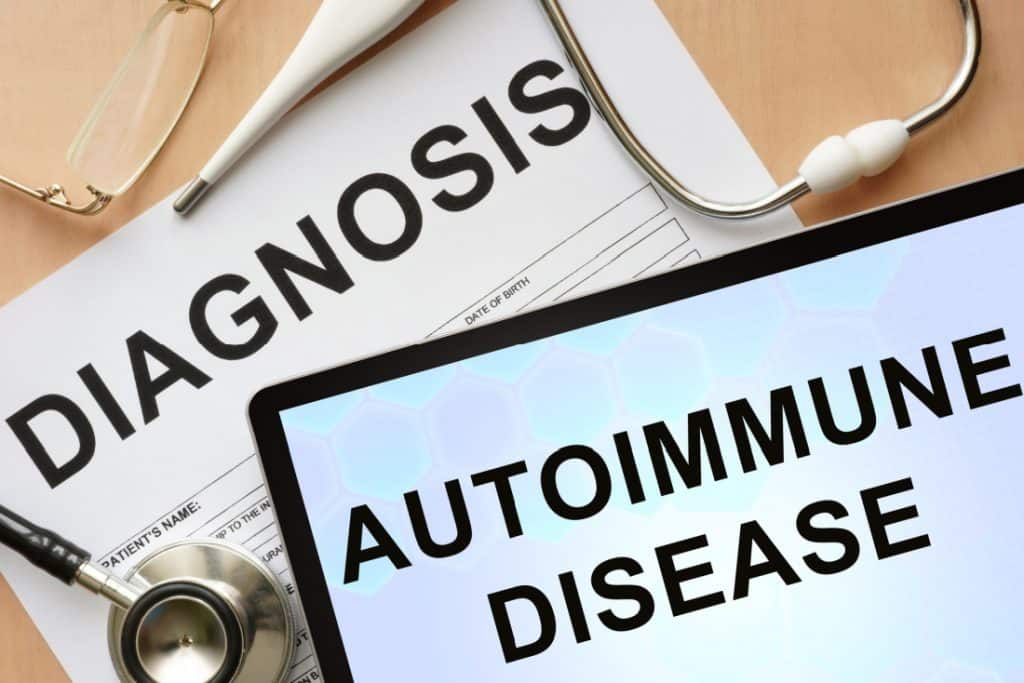5 Early Signs of Autoimmune Disease
Some of the earliest signs of autoimmune diseases can be difficult to identify because they may resemble common issues like the flu or a cold. While autoimmune diseases are not always easy to diagnose, it is important to be aware of the early symptoms so that you can get treatment as soon as possible. Here are five of the most common early signs of autoimmune disease.

Keep an eye out for them, and if you experience any of these symptoms, talk to your doctor about getting tested for an autoimmune condition.
When our bodies can’t tell the difference between our own and foreign cells, we get an autoimmune disease. In the event of autoimmune disease, proteins known as autoantigens assault healthy cells, which is a task for our bodies to do.
Infections and inflammation are common side effects of this illness. It’s still not understood what causes your immune system to become confused, resulting in disease.
The majority of these immune system disorders are more common in women than in males, according to doctors.
Because their symptoms vary so much, the majority of them go undiagnosed for a long time. Because their diagnosis is delayed, the course of treatment suffers as well.
Persistent Exhaustion Is One Of The Early Signs of Autoimmune Disease

The most prevalent complaint mentioned by people with autoimmune diseases including celiac disease and chronic fatigue syndrome is severe and persistent exhaustion.
Because fatigue is multifaceted and vast in scope, it’s especially tough to figure out what’s causing it in disorders with a wide range of pathologies, such as autoimmune diseases.
Debilitating spells of exhaustion that interfere with routine tasks are a common definition of fatigue. Although the severity and duration of fatigue episodes vary, it can make it difficult to perform even simple tasks like crossing a room or climbing a flight of stairs.
Because of its broad scope, the exact mechanisms of weariness are not well known. Respiration supply, digestion, emotion, concentration, and drowsiness, all of which are influenced by inflammation, are known to play a role in fatigue.
The central nervous system, which is directly or indirectly affected by a variety of autoimmune and associated illnesses, is also a major contributor to weariness.
Inflammation and the central nervous system play a role in fatigue, and this review proposes some of the mechanisms that are likely to be present in autoimmune and associated disorders.
Skin Issues

Autoimmune illnesses, which cause a person’s immune system to attack its own tissues, cause the body to react in a number of ways.
An autoimmune disorder can affect a variety of organs, joints, and muscles, as well as other physiological tissues, depending on the condition.
The skin is one of the most typically affected tissues by autoimmune diseases. Autoimmune diseases that affect the skin come in a variety of shapes and sizes.
The first is scleroderma, which affects all of the body’s connective tissue and affects only the skin. Patients with this autoimmune condition may notice changes in their skin as well as symptoms in their vascular system, joints, and tissues.
The second is Psoriasis, it is a chronic autoimmune disease that causes redness and irritation on the skin.
Gestate, plaque, inverted, erythroderma, and pustular psoriasis are the five different kinds of psoriasis. Plaque psoriasis is the most prevalent type of psoriasis, which occurs when elevated, red skin patches are covered with scales, which are flaky, silver-white patches of dead skin.
Joint Pain

Joint pain. Inflammation occurs when the body’s immune system assaults itself, causing thickening of the joint linings, which causes discomfort and swelling.
Without treatment, RA can cause serious bone loss and abnormalities if left untreated. RA is known for its symptoms of joint pain and swelling, but it can also affect other organs in the body.
Fatigue, general weakness, flu-like symptoms, loss of appetite, depression, weight loss, anemia, and chilly or sweaty hands and feet are all common symptoms of RA.
Those with advanced RA may be more susceptible to infections as a result of their condition.
Although the condition is most common in people between the ages of 35 and 55, it can also affect youngsters, who are known as juvenile rheumatoid arthritis.
An autoimmune disease is a condition in which the body’s perception of a certain portion or feature of the body is altered.
It has the potential to trigger the body’s immune system to shift and send blood cells to fight against an infection that doesn’t exist.
Digestive Issues

Many people nowadays are unaware of the link between autoimmune illnesses and the digestive system.
Because certain foods induce an aberrant reaction in people or because they are unable to process particular foods, this relationship can arise.
You can learn more about these conditions by consulting with an integrative medicine doctor. The top digestive autoimmune illnesses are one of the first things to consider.
While there are several autoimmune diseases connected to the digestive system, the first common condition is ulcerative colitis, which is an inflammatory bowel illness that causes ulcers to grow in the colon and rectum.
It is one of several autoimmune disorders that affect the digestive tract. Many people get IBD as a result of overeating or consuming foods that are too rich or heavy.
You may get stomach cramps and other sorts of stomach problems that make it difficult to sit or stand after a heavy holiday meal, for example.
You may have a lot of pain and be miserable as a result of the suffering. It can also be seen in the feces as blood.
In addition, Crohn’s Disease is another prevalent condition that has a wide range of effects and does not affect just one part of the body.
It can affect your mouth, throat, esophagus, and entire digestive system. People who have been diagnosed with this disease will find it challenging to eat specific meals.
They are usually unable to eat spicy or rich foods because they would aggravate their symptoms.
Because the fundamental cause of the disease must be treated in order for the condition to go into remission, it is vital to contact an integrative medicine physician about your symptoms.
Brain Fog

The term “brain fog” refers to symptoms such as drowsiness, forgetfulness, and difficulty concentrating.
Brain fog is experienced by people with a variety of disorders, including postural tachycardia syndrome, moderate cognitive impairment, and autoimmune diseases.
Although it’s not obvious what’s causing these symptoms, there are a few possibilities floating about. Inflammation from the autoimmune disease that affects the brain is one of the elements that might produce brain fog in persons with autoimmune disorders.
It’s understandable that autoimmune disorders that damage the brain directly can lead to mental health problems. The symptoms of autoimmune disease aren’t always severe enough to warrant a diagnosis of mental illness.
However, this does not rule out the possibility of experiencing some mental health issues. Many persons with autoimmune diseases, for example, report poor sleep, depressed mood, and reduced quality of life in terms of both mental and physical well-being.
When you have an autoimmune condition, it’s critical to be on the alert for signs of mental illness. So brain fog can occur regardless of whether you have a mental illness or an autoimmune disease.

If you are experiencing any of these symptoms, it is important to see a doctor and get checked for autoimmune disease.
Early diagnosis and treatment can make a big difference in the long-term prognosis for people with autoimmune diseases.
Have you experienced any of these early signs of autoimmune disease? What was your experience like?






